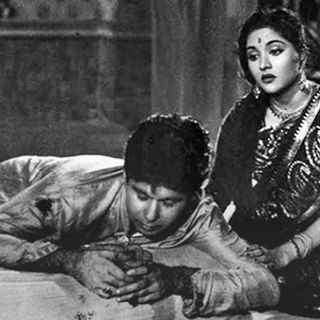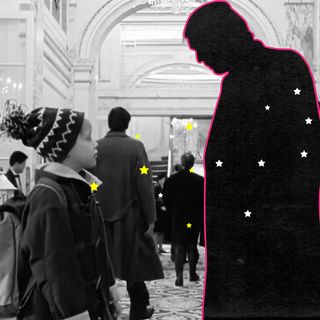“Societal terrorism” — it’s what Kajol’s character, Anu, in Netflix release Tribhanga, calls marriage. It’s one (of many) examples in the comedy-drama where we see a complete and utter rejection of a patriarchal family structure and gender roles, largely through the cigarette-wielding, gaali-giving Anu and in her single mother Nayantara (played by Tanvi Azmi). In the 90-minute film, directed by Renuka Shahane, we see complex mother-daughter relationships play out with Nayan, Anu, and then her daughter, Masha (played by Mithila Palkar). The film subtly explores the costs women incur for their feminism in a patriarchal society. It also demonstrates the strength and fortitude women have to display to keep the ideology alive and well in their, and their children’s, lives, year after year, and generation after generation.
Tribhanga follows Nayan, an acclaimed novelist who chooses to leave her marriage when it interrupts her writing. Nayan’s feminism is shown as entrenched and unrelenting, predominantly apparent in how she values her art, and her career, often over her own children — and more stereotypically apparent in an ever-present glass of whiskey. The feminism of her daughter, Anu, is more tempered, in how she supports her more conservative daughter’s right to marry into a patriarchal household despite it being a choice she would never make. Anu is also utterly dedicated to the kind of motherhood she never experienced herself, and has cultivated an attentive, loving and open relationship with her daughter. More stereotypically, she also wields a cigarette every chance she gets, and thinks badtameezi (rudeness) is a virtue. And then the feminism of Masha, arguably the weakest of the lot, portrayed as a deep appreciation of the fearless lives led by her mother and grandmother, but one that she is willing to compromise for a more stable, familial upbringing she wants for her unborn child.
Related on The Swaddle:
The Problem With Not Liking The Word ‘Feminist’
In Tribhanga, we see the emotional havoc that leading a life outside a traditional family structure can wreak on women. Shahane never asks the viewer to question the validity of these women’s choices, but instead shows what a woman’s life often looks like if she decides to reject any imposition on her relationships, and any restrictions on her freedoms. For example, Nayan never settled down with a man, but brought many into the home in which Anu was growing up. Anu resents her mother for not being enough of a mother, especially when one of Nayan’s boyfriends sexually harasses her without Nayan’s knowledge. This, Anu has taken to signal selfishness, willful ignorance on her mother’s part, which fatally sours their relationship. Anu is then dealt a cruel reality check when her daughter, who grew up fatherless, recounts the harassment she herself underwent as a child, for being najayaz (illegitimate), again accusing Anu of willful ignorance.
For Masha, rejecting society’s norms isn’t an attractive option, because she has seen firsthand how difficult life for independent, single women can be, how freeing yet isolating, how righteous yet fraught. She goes on to choose a more traditional life for herself, even after she’s forced to do a sex determination test for her unborn child (to Anu’s horror).
Related on The Swaddle:
All The Arguments You Need: To Convince Doubters of Feminism
Tribhanga grapples with the dual, irreconcilable viewpoints that a complex relationship, such as one between a mother and daughter, can have, and to a large extent, manages to do it justice. The film shows believing in the right of women to make their own choices — such as Anu choosing to remain unmarried like her mother — and being able to forgive women for making those choices — especially ones that have disastrous consequences, such as Nayan’s relationships ruining Anu’s childhood — are two very different things. Through the eyes of critical children, Tribhanga manages to paint both Nayan’s and Anu’s motherhood in a nuanced, empathetic way, humanizing the mothers, while also justifying the children’s criticism. To hold such distinctive, dissonant perceptions together in one film — without needing to choose a side or deliver any sort of judgment on the mothers, is an incredibly difficult feat, and it’s one Shahane successfully masters.
The film paints feminism as in a constant tussle with society, with the women who choose to embody it caught in the fray. It shows that living out life as an independent, single woman requires an absurdly strong will, injected with different degrees of defiance, badtameezi, and a willingness to entertain, even accept the possibility of being alone, constantly misunderstood, and judged — possibly for entire lifetimes.
If only society had the wherewithal to simply witness the dilemmas women are forced to grapple with every single day. Here, Tribhanga offers a window.




